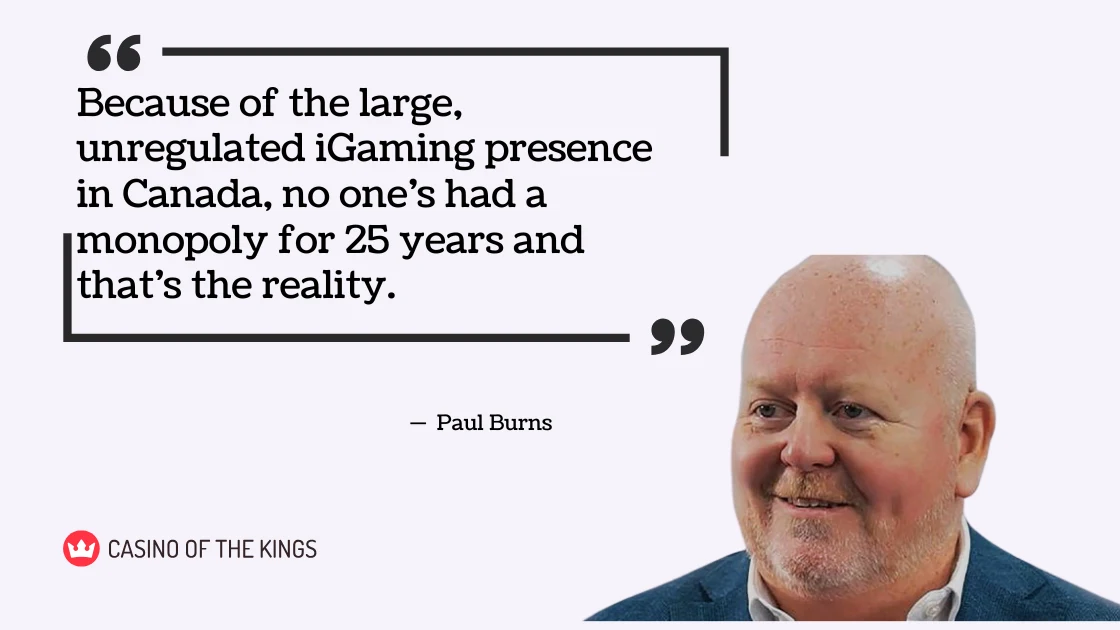Black Market Gambling Prevents Monopoly, According to Trade Body CEO
The presence of a black market in Canada’s iGaming sector has inadvertently prevented the establishment of a government monopoly, highlighting the need for regulation and the benefits of market competition.
In any form of business, the presence of a black market is unlikely to be a good thing, but it may have provided an advantage in Canada’s fledgling iGaming sector. The President and CEO of the country’s trade body, Paul Burns, has claimed that the presence of underground operators has prevented the Canadian government from establishing a monopoly model.
With legalised online gambling set to sweep across the country from 2026, that factor should help both operators and players to reap many advantages.
The Rise of iGaming
Canada’s interest in sports betting and casino play has grown steadily over the years. While the practice has been outlawed in some regions, a loophole has allowed offshore operators to provide services to Canadian residents.
In addition, a smaller number of Canada-based operators are also open in areas where online gambling is legalised. It’s been a mixed landscape and one that has encouraged the black market to gain a foothold. Canada has always provided a willing audience, but with the sector heavily regulated, the door has been kept open for unlicensed operators.
This is a negative aspect in many ways, but the prevention of a monopoly may be the lone positive.
Market Reality
In an interview with GGB Magazine, Paul Burns outlined his overview of the iGaming industry in Canada.

While the presence of the unlicensed operators has held back the monopoly model, it also raises obvious concerns about the need for a regulated countrywide market.
“There’s this whole discussion going on around sweepstakes and predictive markets in North America,” Burns continued.
“The next thing is already here, and there’s more coming. As a regulator, there’s no time to pause anymore.
A Need for Choice
While online gambling continues to open up around the world, it remains heavily restricted in some regions. Many countries have one option open to their citizens, and it involves state-run lotteries and, on occasion, sportsbooks.
This is where the monopoly model is in danger of being established, and, in cases where the practice has opened up, governments may continue to implement a stranglehold.
In areas where the practice is more open, genuine competition provides a better platform for customers. In a crowded and open sector, operators look to offer value to customers in an attempt to stand out. Higher odds and more promotions are among potential benefits, but that’s really the only upside of the black market effect.
Challenges Ahead
The discussion around monopolies provided the headlines from Paul Burns’ interview, but it shouldn’t mask his accompanying messages. With gambling opening up around Canada, the urge to use an unlicensed brand will diminish, but those rogue operators won’t go away.
When Ontario opened its digital doors to the industry in 2022, it laid down a blueprint for others to follow. Burns’ message also highlights the need for strict regulation, and that’s something for Provincial Governments to take very seriously.